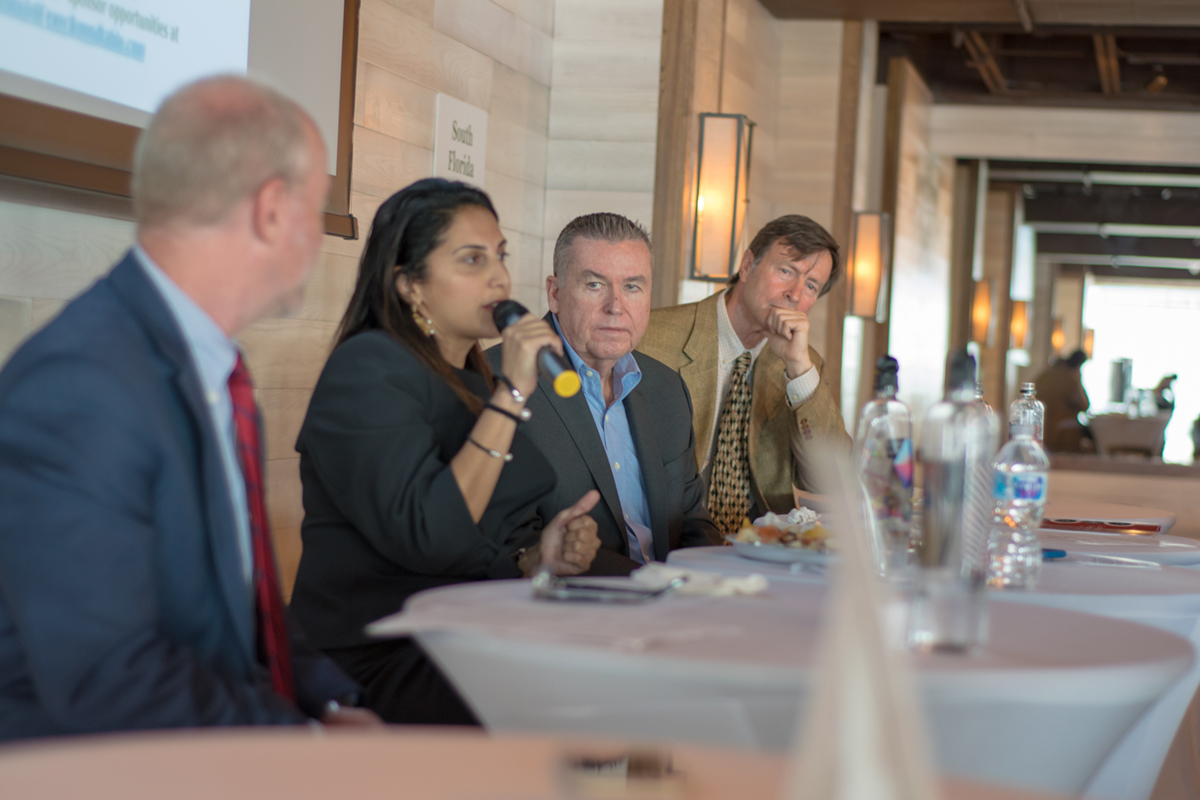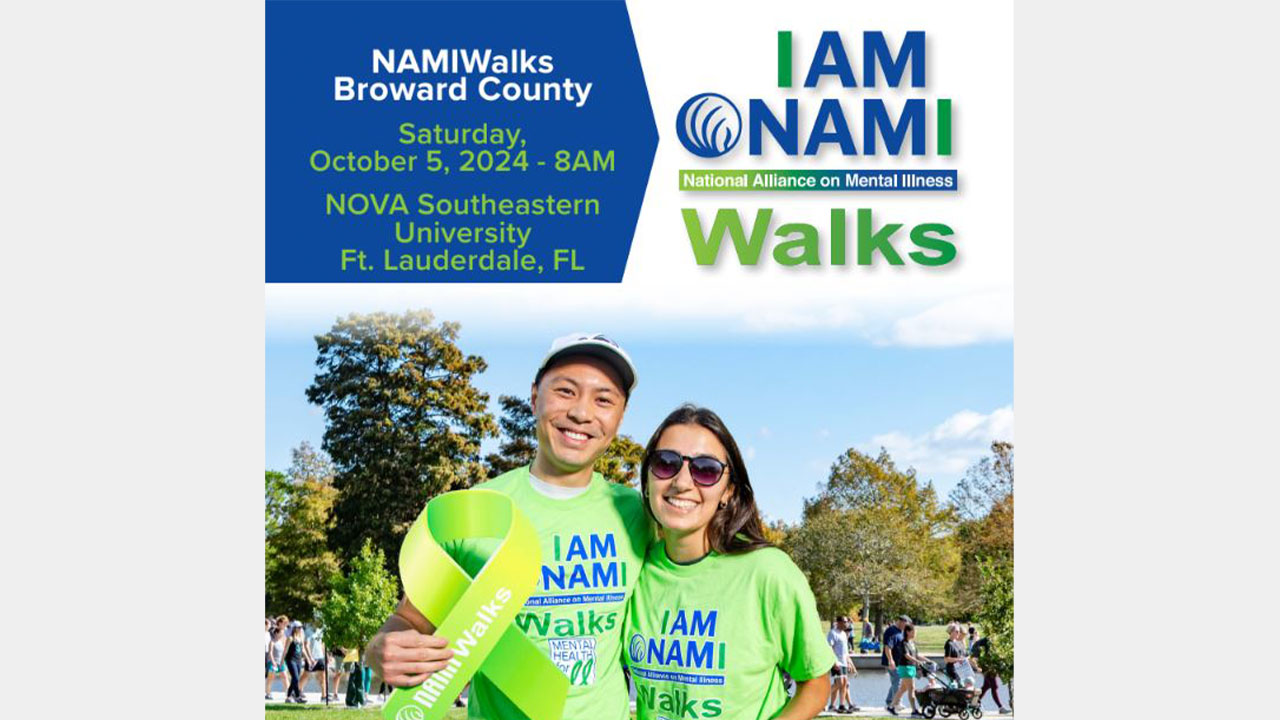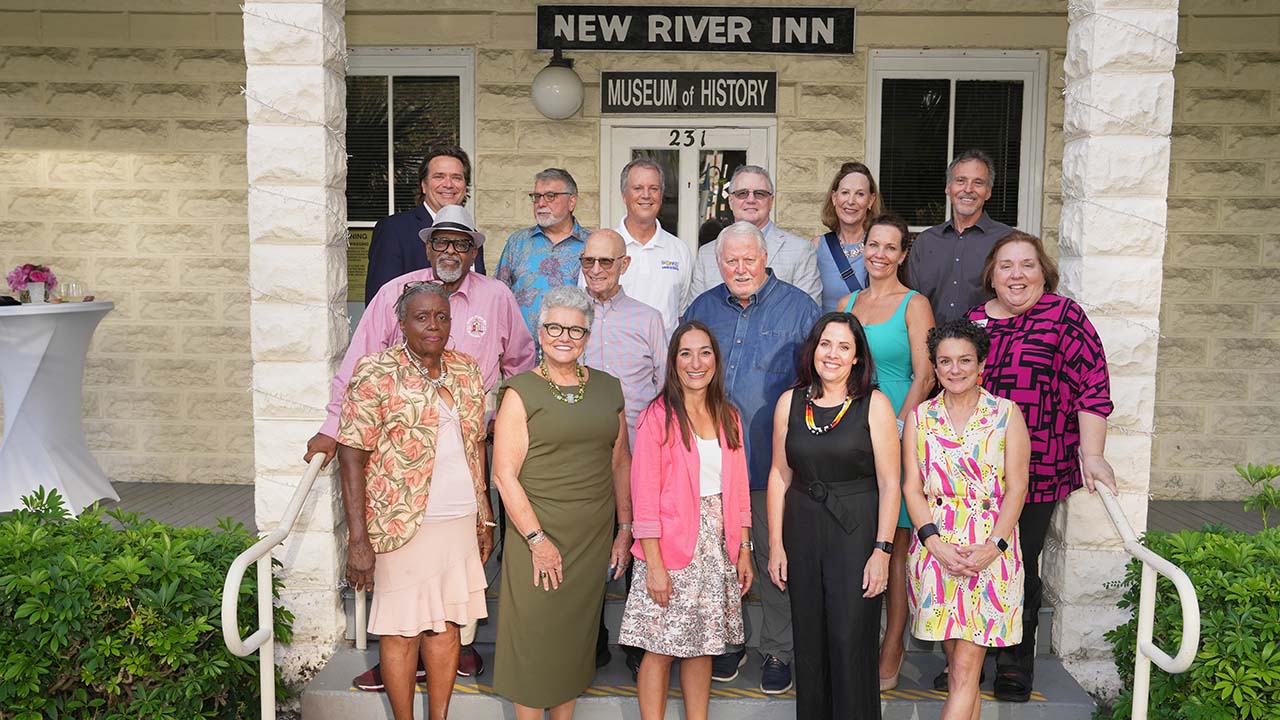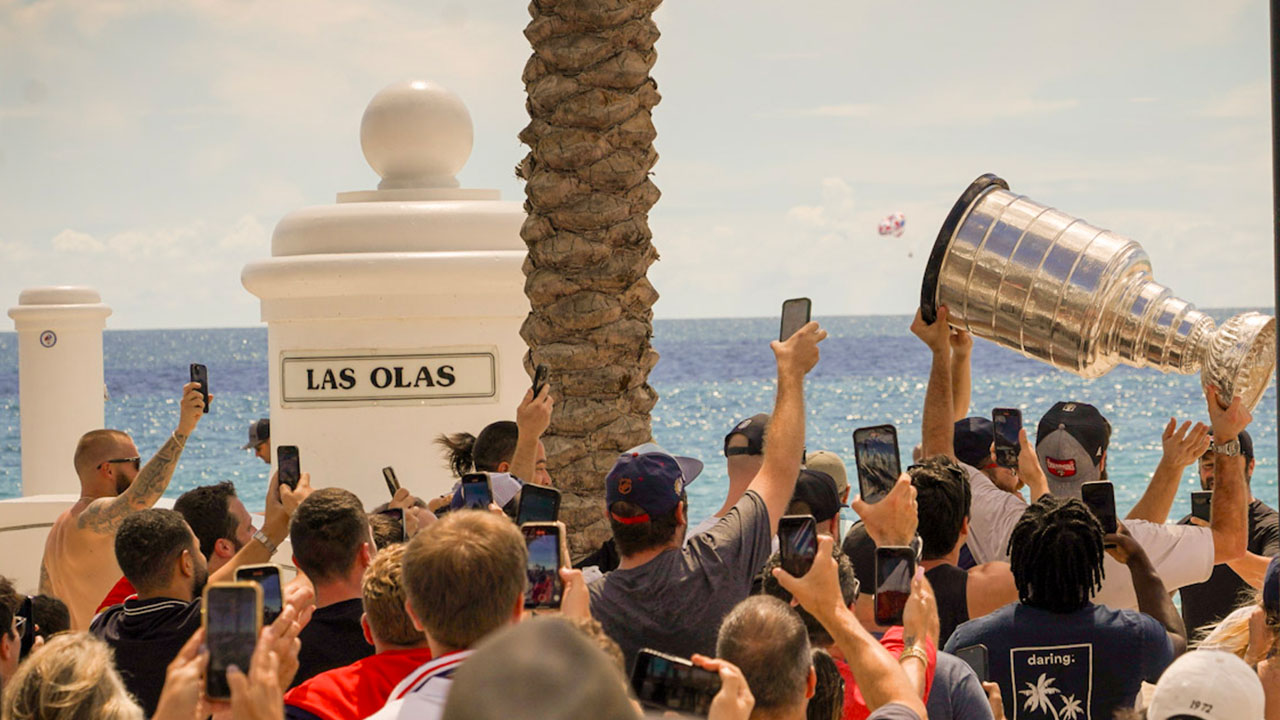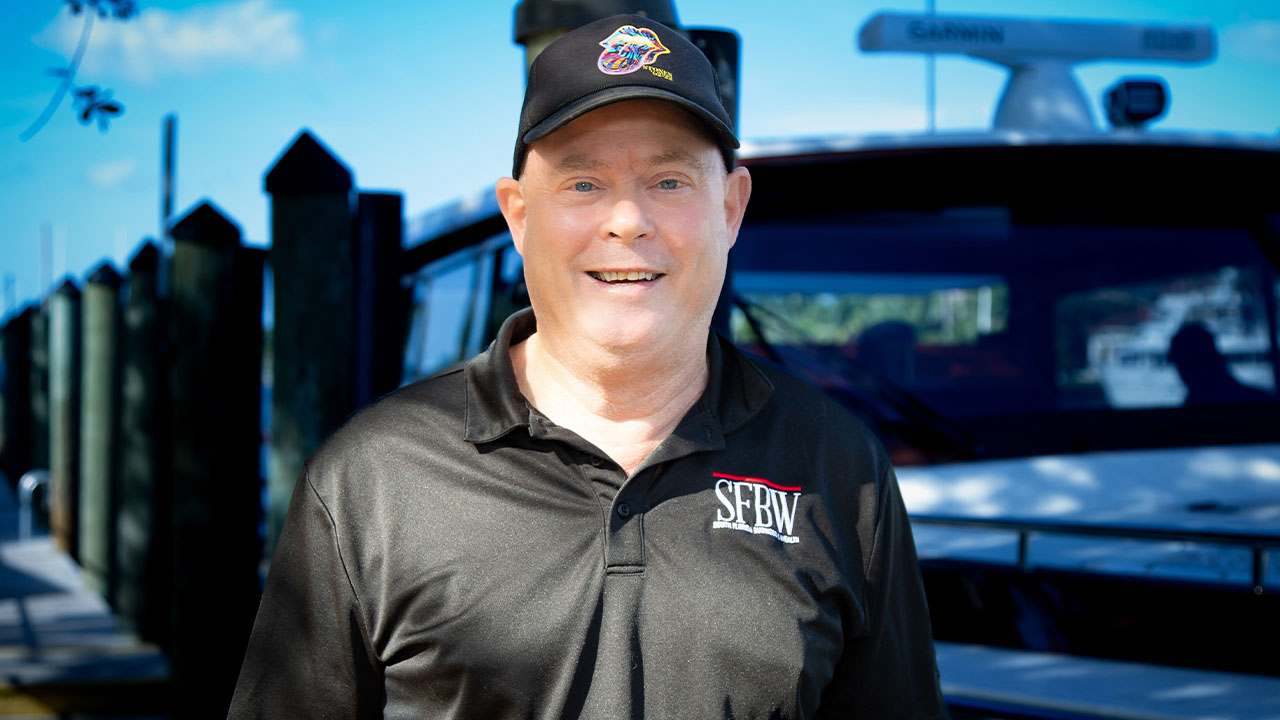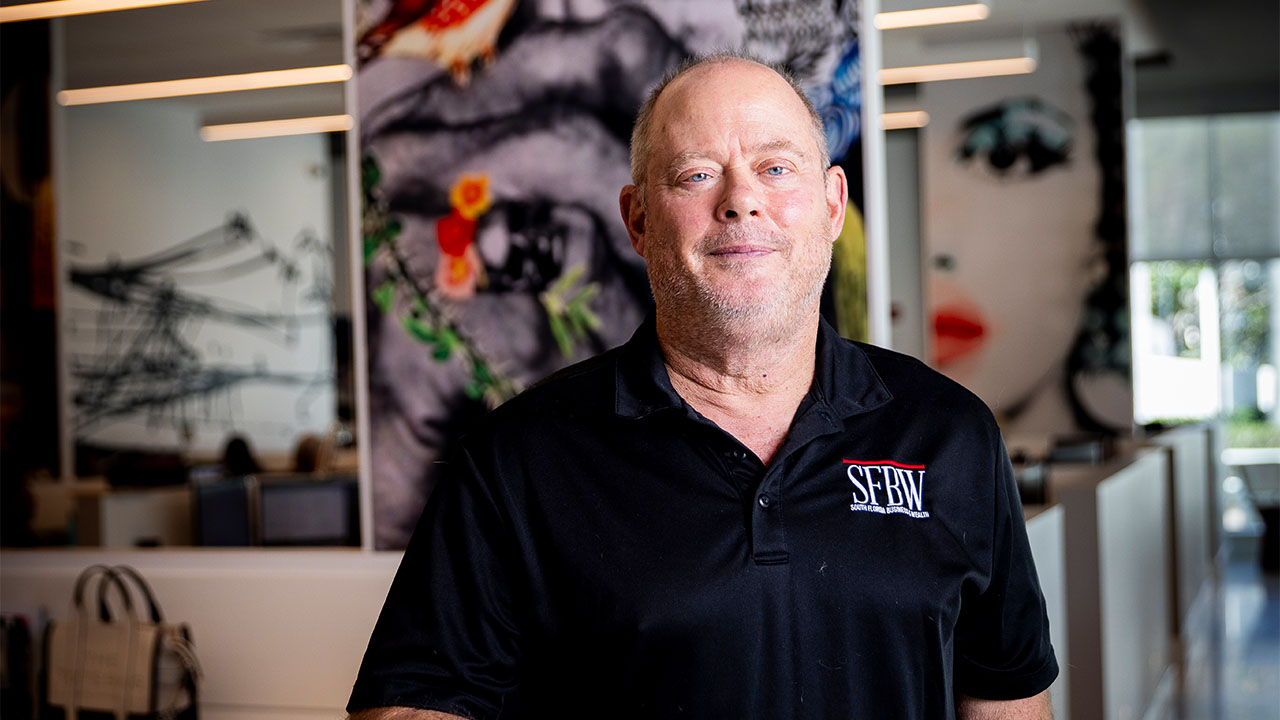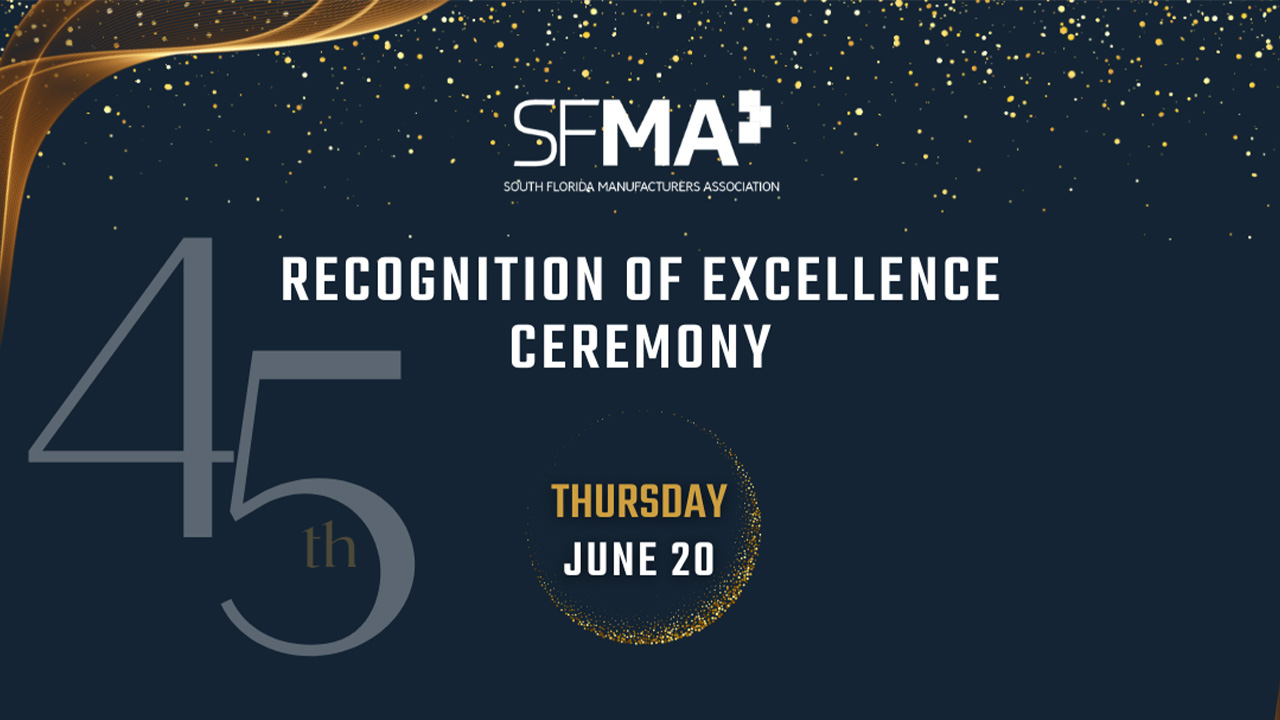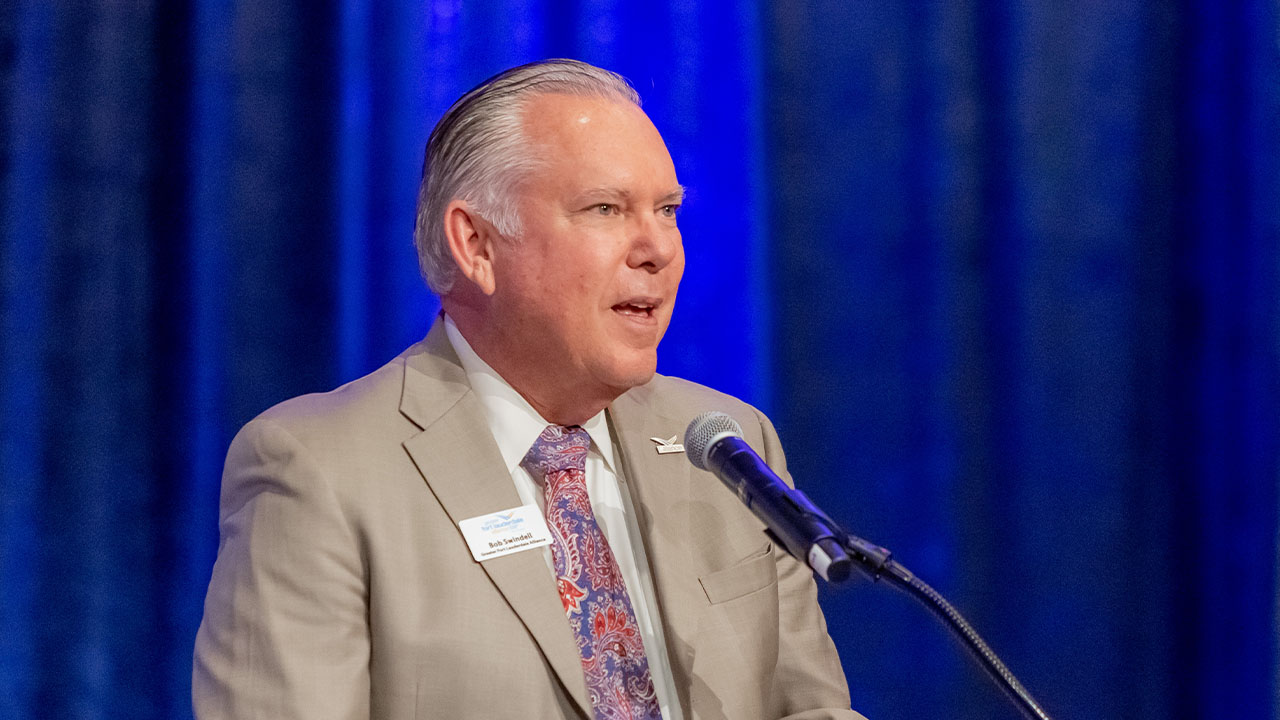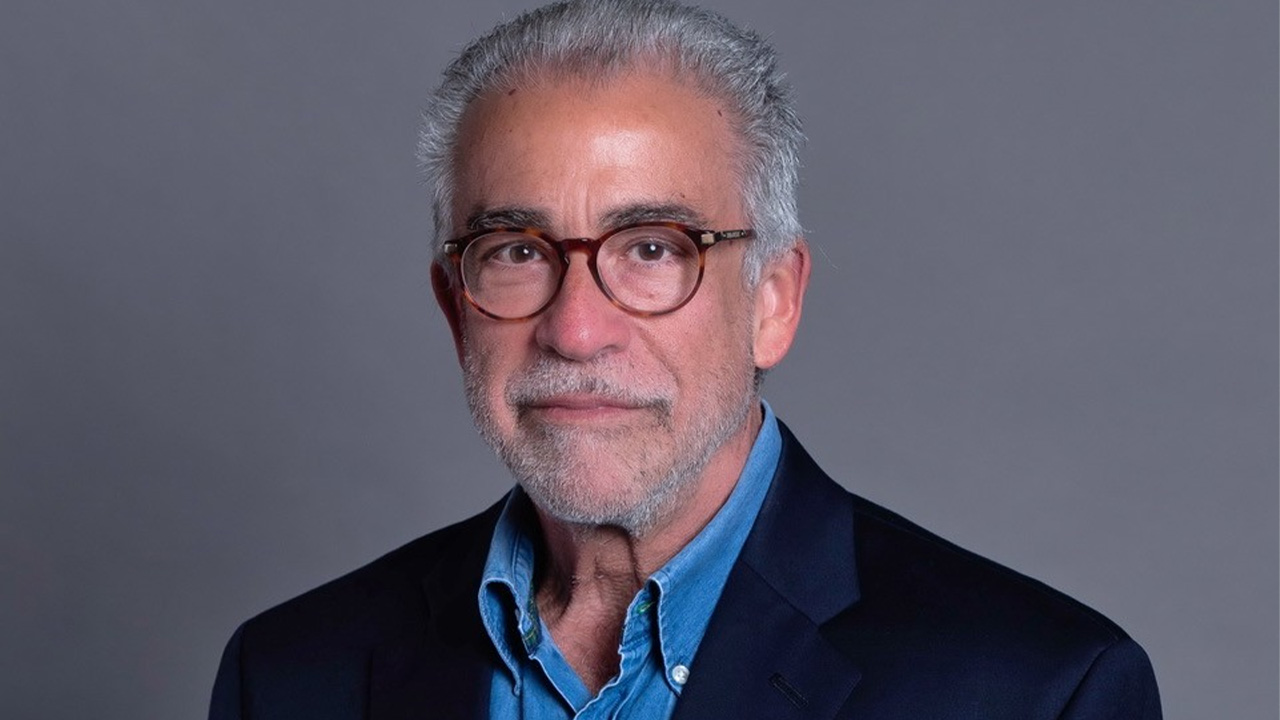[vc_row css_animation=”” row_type=”row” use_row_as_full_screen_section=”no” type=”full_width” angled_section=”no” text_align=”left” background_image_as_pattern=”without_pattern”][vc_column width=”2/3″][vc_column_text]
At the first South Florida Executive Roundtable of 2019, moderator Alex Freund, president of technology firm 4IT, commented about blockchain technologies losing some of their hype and how companies large and small need to invest in cybersecurity. The discussion, spiced with quick wit and humor, evolved into a lively luncheon.
Opening speaker Eduardo J. Padron, president of Miami Dade College and winner of the 2016 Presidential Medal of Freedom, the highest civilian honor in the United States, talked about the college’s role as a resource for the business community.
Afterward, panelist Geeta Nayyar, chief health care and innovation officer at Femwell, asked for his view of the future education in medicine. He noted it will change. “Medical education has changed tremendously,” Nayyar said. “When I went to medical school at the University of Miami, we studied anatomy using cadavers, and now the curriculum has shifted to digital, using 3D imaging.”
Joining the roundtable were panelists J. Stephen Wilder, chief financial and information officer of City Furniture; and Steven Savola, general counsel at Penrod Management and luxury club group Nikki Beach.
Here are some takeaways from the roundtable, which was held at Monty’s Raw Bar in Coconut Grove.
Innovation is one of those words that means something different to different people. How does your organization define innovation?
Nayyar: For me, it’s a change in progress and it can present challenges. Innovation is not always something positive, and we don’t always talk about it. For instance, the creation of the antibiotic was such an innovative thing and a change in the practice of medicine. But also, it brought along all kinds of problems, as it has been overprescribed and people developed resistance to antibiotics.
Wilder: We started as a waterbed company. Today, we look at innovation as a pathway to not get disrupted, not get marginalized. The truth is, if you’re not innovating, you’re not going to grow. We are a lean organization. It’s all about how we can continuously improve and evolve and the way we approach work, with technology and without. At City Furniture, we have put a lot of effort into the digital side of our business. We have an app for our merchandise that’s on clearance. Our in-store sales associates use iPads to assist customers and from that, the platform has served as a launchpad where we’ve found other solutions. Our sales associates are no longer tethered to a desk. What we like to say, is we are a technology company that happens to sell furniture.
Savola: I come from the legal and corporate perspective. For Penrod and Nikki Beach being in the food and beverage industry, we have an international clientele base and we grew our marketing department to figure out how to keep attracting customers by giving them the experiences they want to want to come back through our door. Also, you have to look at your competitor and see what they are doing technology-wise, marketing-wise. If you’re not doing things right, your competitors will. You need to have the mindset that you will train your people right and stay ahead of the curve.
We talked about innovations that were successful. Let’s talk about innovations that didn’t succeed.
Savola: We used this cutting-edge technology to capture email addresses. It worked well. Then the European Union passed all these data laws and regulations so now we aren’t able to get in touch with those customers. That’s one example that didn’t work, and we’ve had to learn from it.
What have your experiences hiring people been like?
Wilder: For us, we really try to promote from within. We try to grow with organic growth and when we don’t have that we ask for referrals from staff. We are trying to align ourselves more with universities to attract and find talent. But really, finding the right talent comes down to attitude. Do they have the right attitude? We provide continuous learning experiences at our organization, and we want that person who is going to come onboard and is willing to learn and continuously strive to learn.
Nayyar: You can teach skills. One thing to consider is the importance of culture. And we actually look for people outside of our organization to consult on how to help us with our culture. We want a third party to help us to figure things out, because we are too ingrained to see the big picture.
By 2025, millennials will comprise 75 percent of the workforce. What does your company do specifically to create a culture that fosters inclusiveness and professional growth that engages millennials?
Wilder: Well, I think our approach to problem-solving doesn’t come from the top down with decisions always being made around the C-suite. We very much encourage inclusion. And I think that an inclusive environment—not just for millennials, but for nearly everyone—appreciates it. I had doubts a few years ago about the younger workforce, [but] I have confidence and I think they will take us higher than we’ve gone before. I invest in them and I now sleep better at night. ♦
SFBW is the exclusive media partner of the South Florida Executive Roundtable. For more information on SFER, visit SFexecRoundtable.com.
[/vc_column_text][/vc_column][vc_column width=”1/3″][vc_gallery interval=”0″ images=”29924,29925,29926,29927″ img_size=”full” show_image_description=”yes”][/vc_column][/vc_row]



